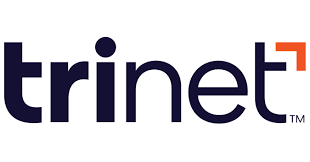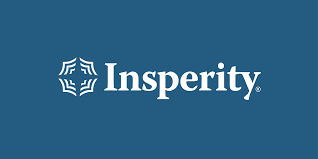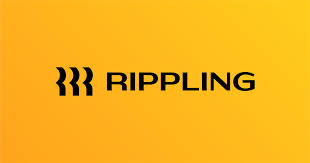
Human Resources Outsourcing | HRO Buyer’s Guide
Best HR Companies of 2024
TriNet (HRO)

Avg. Savings $8,875/Year
Insperity

Full Service HR
Rippling

#1 Rated HRIS
HR Outsourcing Explained
Human resources outsourcing (HRO) is a business practice where an organization hires an external firm to handle some or all of its HR functions. These functions may include recruiting and hiring employees, managing employee benefits and payroll, managing performance and employee development, managing employee relations, and complying with labor laws and regulations.
The HRO firm works as a strategic partner to the organization, offering specialized expertise and resources to handle HR tasks that the organization may not have the time, expertise, or resources to manage in-house.

The HRO provider may also offer additional services such as employee training and development, succession planning, and workforce analytics. By outsourcing these HR functions, organizations can reduce their administrative burden, streamline HR processes, and focus on their core business activities.

HRO can be particularly beneficial for small and mid-sized organizations that lack the resources to build and maintain a robust HR department. However, large organizations also commonly outsource certain HR functions to reduce costs and improve efficiency.
Overall, HRO can be a valuable strategy for organizations looking to improve their HR operations and achieve their business objectives more effectively.
Popular HR Solutions and Costs
- Bambee – From $99/month – Visit Website
- Gusto – #1 Payroll Software – Visit Website
- ADP – 2023 Fortune Worlds Most Admired Companies – View Pricing
ASO Vs. PEO – Advantages and Disadvantages
When it comes to managing human resources for your business, there are several different approaches to consider. Two popular options are ASO (Administrative Services Organization) and PEO (Professional Employer Organization). Both ASOs and PEOs can help businesses with HR tasks, but they operate in different ways and have their own pros and cons.
What is an ASO?
An ASO is a third-party provider that helps businesses manage their administrative HR tasks. This can include managing payroll, benefits administration, compliance, and other HR-related tasks. Essentially, an ASO takes on some of the administrative tasks that would typically be handled in-house by the business.

What is a PEO?
A PEO is a professional employer organization that works as a co-employer with the business. This means that the PEO takes on many of the employer responsibilities, such as managing payroll and taxes, providing employee benefits, and handling workers’ compensation claims. The PEO also provides HR consulting services to help businesses manage employee relations, compliance, and other HR-related issues.
Pros and Cons of ASOs
Pros:
- ASOs can help businesses manage administrative HR tasks more efficiently, freeing up time and resources to focus on core business activities.
- ASOs can provide businesses with access to expert HR knowledge and resources that they may not have in-house.
- ASOs can help businesses stay compliant with HR regulations and laws, reducing the risk of legal issues.
- ASOs can help businesses save money on HR-related costs, such as payroll and benefits administration.
Cons:
- ASOs may not provide as much support for employee relations and HR strategy as PEOs.
- ASOs may require more involvement from the business in managing HR tasks compared to PEOs.
- ASOs may not be as effective in managing HR-related risks as PEOs.
Pros and Cons of PEOs
Pros:
- PEOs can provide businesses with a wider range of HR services, including benefits administration and employee relations support.
- PEOs can help businesses reduce their HR-related risks by providing compliance support and managing workers’ compensation claims.
- PEOs can help businesses save money on HR-related costs by leveraging their buying power for benefits and other HR services.
Cons:
- PEOs may be more expensive than ASOs, particularly for smaller businesses.
- PEOs may require more involvement from the business in HR tasks compared to ASOs.
- PEOs may require more significant changes to a business’s HR processes and culture compared to ASOs.
Both ASOs and PEOs can be effective ways to manage HR tasks for businesses. The best option will depend on the specific needs and priorities of the business. Businesses should carefully consider the pros and cons of each option before making a decision.
ASO Duties vs. PEO Duties
| Duties Fulfilled | ASO | PEO |
| Employer of Records (EOR) | With ASO the company is the EOR | PEO is the employer of record, which permits employment-related risks to be shared. |
| HR Administration | Minimal Support. The client is responsible for implementing proper HR policies that comply with state/federal laws and regulations. | Minimal Support. The client is responsible for implementing proper HR policies that comply with state/federal laws and regulations. |
| Workers’ Compensation Insurance | Client finds and chooses their own Worker’s Compensation policy. | Insurance is provided under PEOs master policy. Your cost is generally negotiated by your PEO. |
| Employee Benefits Management | The client secures coverages, but can lean on the ASO provider for administration of benefits. | The client secures coverages, but can lean on the ASO provider for administration of benefits. |
| Risk Assessment and Safety Management | ASO can handle safety management support but cannot support claims management | PEO is responsible for claims management and safety compliance. |
| Liabile For Payroll Tax | Payroll tax is entirely managed by the company. ASO is not responsible for any payroll tax liability. | PEO is liable for federal taxes. Check with your state as each state has their own set of liability rules. |
| Regulatory Compliance | ASO manages regulatory compliance, adherence to laws, regulations, and guidelines. | PEO manages responsibilities related to regulatory compliance and laws. |
| Unemployment Claims | Under ASO both party can manage unemployment claims. | Under PEO the PEO provider manages unemployment claims. |
Who Uses HR Outsourcing?
Human resources outsourcing (HRO) can be used by a wide range of organizations, from small startups to large corporations. The following are some examples of businesses that commonly use HRO:
- Small businesses: Small businesses may not have the resources to build and maintain a robust HR department. By outsourcing their HR functions, they can reduce administrative burden and focus on core business activities.
- Growing businesses: As businesses grow, they may need to scale their HR operations quickly to keep up with the demands of a larger workforce. Outsourcing HR functions can help them do this more efficiently.
- International businesses: Businesses that operate in multiple countries may face complex legal and regulatory requirements. Outsourcing HR functions can help them stay compliant with local laws and regulations.
- Businesses in highly regulated industries: Industries such as healthcare and finance may have strict compliance requirements for HR operations. Outsourcing can help businesses stay compliant and reduce the risk of penalties or legal issues.
- Businesses with limited HR expertise: Some businesses may not have the in-house expertise to manage complex HR functions such as payroll and benefits administration. Outsourcing these functions to an HRO provider can provide access to specialized expertise and resources.
Overall, HRO can be a valuable strategy for any business that wants to improve their HR operations, reduce costs, and focus on core business activities.
Benefits of HR Outsourcing (HRO)
Human resources outsourcing (HRO) is becoming an increasingly popular strategy for businesses of all sizes and industries. HRO involves hiring an external firm to handle some or all of a company’s HR functions, including recruiting and hiring employees, managing payroll and benefits, managing employee performance, and ensuring compliance with labor laws and regulations. Here are some of the benefits of HR outsourcing for businesses:
- Cost Savings: By outsourcing HR functions, businesses can reduce the need for in-house HR staff, which can lead to significant cost savings. HRO providers can leverage economies of scale to offer more competitive pricing for HR services than would be possible for individual businesses.
- Access to Expertise: HRO providers have specialized expertise and resources that may not be available in-house. They can provide businesses with access to experts in areas such as compliance, benefits administration, and payroll processing.
- Reduced Administrative Burden: HR functions can be time-consuming and administratively burdensome for businesses. Outsourcing HR functions can free up time and resources that can be better spent on core business activities.
- Improved Compliance: Staying compliant with labor laws and regulations can be a challenge for businesses, particularly those in highly regulated industries. HRO providers can help businesses stay up-to-date with changing regulations and ensure compliance with labor laws.
- Scalability: As businesses grow, their HR needs can become more complex. Outsourcing HR functions can provide businesses with the flexibility to scale their HR operations up or down as needed.
- Better Risk Management: HR-related risks such as employee lawsuits and data breaches can have significant financial and reputational consequences for businesses. HRO providers can help businesses manage these risks by ensuring compliance with labor laws and regulations and implementing effective HR policies and procedures.
- Improved Employee Experience: HR functions such as benefits administration and payroll processing are critical to employee satisfaction and retention. Outsourcing these functions to an HRO provider can improve the employee experience by ensuring accurate and timely processing of benefits and payroll.
Overall, HR outsourcing can provide businesses with a range of benefits, from cost savings to improved compliance and risk management.

By partnering with an HRO provider, businesses can access specialized expertise and resources, reduce administrative burden, and focus on their core business activities.
How Much Does it Cost to Outsource Human Resources?
Human resources outsourcing (HRO) is a strategy that can help businesses improve their HR operations, reduce costs, and focus on core business activities. However, one of the most common questions businesses have when considering HRO is, “How much does it cost?” The answer depends on several factors, including the size of the business, the scope of HR functions to be outsourced, and the level of service provided by the HRO provider.
Size of the Business
The size of the business is one of the most significant factors that influence the cost of outsourcing HR duties. HRO providers typically charge businesses based on the number of employees they have. As a result, smaller businesses will generally pay less for HRO services than larger businesses.
Scope of HR Functions to be Outsourced
The scope of HR functions that are outsourced will also impact the cost of HRO services. Some businesses may choose to outsource only a few HR functions, such as payroll processing or benefits administration. Others may outsource their entire HR department. The more HR functions that are outsourced, the higher the cost is likely to be.
Level of Service Provided by the HRO Provider
Depending on the type of HR support needed, the national average cost to outsource human resource services can be as little as $55/month to as much as $2100 per month. Expect to pay between $300-$5000 per employee per year.
HRO providers typically offer different levels of service, ranging from basic administrative services to more comprehensive HR consulting services. The level of service provided will impact the cost of HRO services. Basic administrative services, such as payroll processing, tend to be less expensive than more comprehensive services, such as HR consulting.
Other Factors to Consider
In addition to these primary factors, there are several other factors that can impact the cost of outsourcing HR duties, including:
- Contract length: The length of the contract can impact the cost of HRO services. Longer contracts may result in lower costs per employee.
- Service fees: Some HRO providers may charge additional fees for services such as setup, implementation, and termination.
- Customization: Customizing HRO services to meet specific business needs may result in additional costs.
- Industry: Some industries, such as healthcare and finance, may require more specialized HR expertise, which can impact the cost of HRO services.
Overall, the cost of outsourcing HR duties will vary based on several factors. Businesses should carefully consider their specific HR needs, as well as their budget, when evaluating the cost of HRO services. Working with an HRO provider to customize a solution that meets their needs and budget is essential to ensure a successful HRO partnership.
Popular Human Resource Companies
Here are some of the top human resource outsourcing (HRO) companies in the industry:
- ADP: ADP is a global provider of HRO services, offering a wide range of services, including payroll processing, benefits administration, talent management, and HR consulting. ADP serves businesses of all sizes and industries, and their services are customizable to meet the specific needs of each business.
- TriNet: TriNet is a comprehensive HRO provider that offers a full suite of HR services, including payroll processing, benefits administration, HR compliance, and employee management. They specialize in serving small and mid-sized businesses and offer services that can help these businesses attract and retain top talent.
- Insperity: Insperity is an HRO provider that offers a range of HR services, including payroll processing, benefits administration, HR consulting, and employee performance management. They specialize in serving small and mid-sized businesses and offer customizable solutions to meet each business’s unique needs.
- Paychex: Paychex is an HRO provider that offers a variety of HR services, including payroll processing, benefits administration, HR compliance, and employee management. They serve businesses of all sizes and industries, and their services are customizable to meet each business’s specific needs.
- Oasis, a Paychex Company: Oasis, a Paychex Company, is an HRO provider that offers a range of HR services, including payroll processing, benefits administration, HR consulting, and employee performance management. They specialize in serving small and mid-sized businesses and offer customized solutions to meet each business’s unique needs.
- Trion Solutions: Trion Solutions is an HRO provider that offers a variety of HR services, including payroll processing, benefits administration, HR compliance, and employee management. They specialize in serving small and mid-sized businesses and offer customized solutions to meet each business’s specific needs.
- G&A Partners: G&A Partners is an HRO provider that offers a range of HR services, including payroll processing, benefits administration, HR consulting, and employee performance management. They serve businesses of all sizes and industries, and their services are customizable to meet each business’s unique needs.
Each of these HRO providers has its own strengths and specialties, and businesses should carefully evaluate their options to find the provider that best meets their needs.
Tasks Provided by Human Resource Companies
Human resource companies offer a wide range of tasks and services to help businesses manage their HR functions more efficiently. Here are some of the most common tasks provided by human resource companies:
- Payroll processing: Human resource companies can manage payroll processing for businesses, including calculating employee pay, withholding taxes, and issuing paychecks. This can help businesses save time and ensure accuracy in their payroll processing.
- Benefits administration: Human resource companies can manage employee benefits, including health insurance, retirement plans, and other employee benefits. This can help businesses ensure compliance with regulatory requirements and offer competitive benefits to their employees.
- Employee relations: Human resource companies can provide employee relations support to businesses, including handling employee complaints, conducting investigations, and offering guidance on employment laws and regulations. This can help businesses maintain a positive work environment and minimize legal risks.
- Recruitment and hiring: Human resource companies can manage the recruitment and hiring process for businesses, including posting job listings, reviewing resumes, conducting interviews, and making job offers. This can help businesses attract and retain top talent while minimizing the time and resources required for the hiring process.
- Performance management: Human resource companies can manage employee performance, including setting goals, conducting performance evaluations, and providing feedback to employees. This can help businesses improve employee productivity and performance and ensure that employees are meeting their goals.
- HR compliance: Human resource companies can help businesses ensure compliance with labor laws and regulations, including creating and maintaining HR policies and procedures, managing compliance reporting, and conducting compliance training. This can help businesses minimize legal risks and maintain a positive reputation.
- HR consulting: Human resource companies can provide HR consulting services to businesses, including offering guidance on HR strategy, organizational development, and change management. This can help businesses improve their overall HR operations and achieve their business objectives more effectively.
- Onboarding and off boarding: Human resource companies can manage the onboarding and offboarding process for businesses, including completing new hire paperwork, setting up employee profiles, and conducting exit interviews. This can help businesses ensure a smooth transition for new employees and minimize legal risks during employee separations.
- Time and attendance tracking: Human resource companies can manage time and attendance tracking for businesses, including tracking employee hours, managing time off requests, and ensuring compliance with labor laws and regulations. This can help businesses minimize errors and ensure accurate record-keeping for payroll processing.
- Training and development: Human resource companies can provide employee training and development services to businesses, including offering customized training programs, managing employee certifications, and tracking employee progress. This can help businesses improve employee skills and productivity and ensure compliance with regulatory requirements.
- Background checks and drug testing: Human resource companies can manage background checks and drug testing for businesses, including conducting screenings, managing compliance reporting, and maintaining confidential employee records. This can help businesses ensure a safe work environment and minimize legal risks.
- Employee engagement and retention: Human resource companies can help businesses improve employee engagement and retention, including conducting employee surveys, offering feedback and coaching to employees, and implementing employee recognition programs. This can help businesses maintain a positive work environment and reduce employee turnover.
- Immigration compliance: Human resource companies can help businesses ensure compliance with immigration laws and regulations, including managing visa applications, maintaining employee records, and conducting compliance reporting. This can help businesses avoid legal risks and ensure that their international employees are authorized to work in the United States.
Overall, human resource companies can provide a wide range of services to help businesses manage their HR functions more efficiently and effectively. By outsourcing these tasks, businesses can reduce administrative burden, improve compliance, and focus on their core business activities.
Getting Started With HRO
For more information regarding cost, features, and benefits of outsourcing human resources, click below to be contacted by reliable HRO companies near you.
HELPFUL ARTICLES:
People who read this continent also find these topics useful:
Answering Service Cost
Debt Collection Outsourcing
Office Cleaning Prices
Postage Meters Rates
Office Copier Cost
